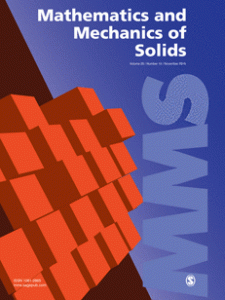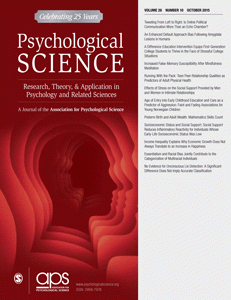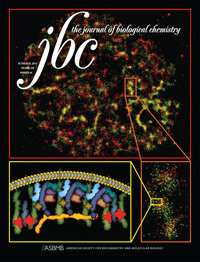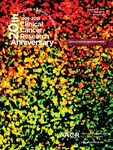 This week’s Weekend Reads, which appears below, was preempted yesterday by the news that the Office of Research Integrity had issued a finding of misconduct in the long-running case of Anil Potti. The week also featured news about a child psychiatry trial halted for unexplained reasons, and saw the launch of our new weekly column at STAT, a new life sciences site from Boston Globe Media. Here’s what was happening elsewhere: Continue reading Weekend reads: Elsevier mutiny; babies as co-authors; what to do after rejection
This week’s Weekend Reads, which appears below, was preempted yesterday by the news that the Office of Research Integrity had issued a finding of misconduct in the long-running case of Anil Potti. The week also featured news about a child psychiatry trial halted for unexplained reasons, and saw the launch of our new weekly column at STAT, a new life sciences site from Boston Globe Media. Here’s what was happening elsewhere: Continue reading Weekend reads: Elsevier mutiny; babies as co-authors; what to do after rejection
Month: November 2015
It’s official: Anil Potti faked cancer research data, say Feds

Following five years of scrutiny, more than ten retractions, multiple settled lawsuits, and medical board reprimands, we may finally have some resolution on the case of Anil Potti, the once-rising cancer research star who resigned from Duke in 2010.
While there have been numerous allegations of misconduct in Potti’s work, and strong comments to that effect by Potti’s former mentor, Joseph Nevins, there has been no official finding. Today, that changes. Potti “engaged in research misconduct,” the Office of Research Integrity (ORI) concludes in a report to be published in the Federal Register on Monday.
Potti — referred to as “respondent” in the report — included “false research data” in reports of research from six different NIH grants, according to the ORI: Continue reading It’s official: Anil Potti faked cancer research data, say Feds
Child psych studies halted for “unanticipated event,” sparking misconduct investigation

We’ve just learned what sparked a University of Illinois at Chicago investigation that recently concluded a child psychiatrist had committed misconduct: An “unanticipated event during a study,” which halted three studies and resulted in a letter sent out to 350 research subjects.
Earlier this week, we reported that an investigation at the University of Illinois at Chicago found “a preponderance of evidence” that child psychiatrist Mani Pavuluri had committed misconduct. The university told the U.S. Department of Health and Human Services about the investigation in 2013. The findings of the investigation led the university to request the retractions of three papers, one of which has been pulled so far, for not properly disclosing how much medication children had received outside the study.
Today, we found out what prompted the university to launch that investigation, courtesy of a statement from a spokesperson: Continue reading Child psych studies halted for “unanticipated event,” sparking misconduct investigation
Authors withdraw two papers from JBC — and that’s all we know
Two sets of authors have withdrawn their papers from the Journal of Biological Chemistry. We’re telling you about the both together because, true to JBC form, there’s not too much to say.
The retraction notices for both papers — about the molecular underpinnings of cardiac fibroblasts and melanoma cells — are identical:
Continue reading Authors withdraw two papers from JBC — and that’s all we know
Author’s coordination of peer review flags 13 math papers
 Thirteen papers in Mathematics and Mechanics of Solids now have an expression of concern, after it came to light that an author on most of the papers coordinated the peer-review process.
Thirteen papers in Mathematics and Mechanics of Solids now have an expression of concern, after it came to light that an author on most of the papers coordinated the peer-review process.
David Y. Gao, a well-known and prolific mathematician at the Federation University Australia, is the author of 11 of the papers, and also the guest editor of the special issue in which they were set to appear. The papers were published online earlier this year.
A spokesperson for SAGE, which publishes the journal, confirmed that the publisher decided to re-review the papers after learning about Gao’s role in the peer-review process:
Continue reading Author’s coordination of peer review flags 13 math papers
Got the blues? You can still see blue: Popular paper on sadness, color perception retracted
 A paper published in August that caught the media’s eye for concluding that feeling sad influences how you see colors has been retracted, after the authors identified problems that undermined their findings.
A paper published in August that caught the media’s eye for concluding that feeling sad influences how you see colors has been retracted, after the authors identified problems that undermined their findings.
The authors explain the problems in a detailed retraction note released today by Psychological Science. They note that they found sadness influenced how people see blues and yellows but not reds and greens, but they needed to compare those findings to each other in order to prove the validity of the conclusion. And once they performed that additional test, the conclusion no longer held up.
In the retraction note for “Sadness impairs color perception,” the editor reinforces that there was no foul play:
Mega-correction to several images in gastric cancer study
A journal has issued a rather large correction — what we call “mega-correction” — to a 2014 paper on a gastric cancer biomarker that fixes problems with several of the study’s figures.
The authors write that despite the corrections, “the results and conclusions put forth in the article remain unchanged.”
The paper, “TMEFF2 Deregulation Contributes to Gastric Carcinogenesis and Indicates Poor Survival Outcome” explored the role of TMEFF2 in gastric cancer. The researchers found that the protein acts as a tumor suppressor, and low levels can indicate the presence of cancerous cells.
Here’s the full correction notice, published by Clinical Cancer Research in August:
Continue reading Mega-correction to several images in gastric cancer study
Authors object to duplication verdict by environmental journal
 An environmental journal has pulled a 2011 paper following an investigation, which revealed it contained “extensive similarities” with another paper published two years earlier by some of the same authors.
An environmental journal has pulled a 2011 paper following an investigation, which revealed it contained “extensive similarities” with another paper published two years earlier by some of the same authors.
Two of the authors of the newly retracted paper — Zulfiqar Ahmad from Quaid-i-Azam University and Arshad Ashraf of the National Agricultural Research Center, both in Islamabad, Pakistan — were the sole authors of a 2008 paper about modeling groundwater flow in Indus Basin, Pakistan. The 2011 paper — posted online in 2010 — focused on the same topic, but included two additional authors, one of whom told us he was unaware of the previous paper and agrees with the journal’s decision. Ahmad, however, has defended the 2011 paper and asked that the journal remove the retraction note.
Here’s the note, published in April by Environmental Monitoring and Assessment: Continue reading Authors object to duplication verdict by environmental journal
More retractions, errata discovered for nursing researcher
Since our recent coverage about a university investigation that led to multiple retractions for nursing researcher Moon-fai Chan, we’ve been alerted to a few more retractions and errata. His total is now at six retractions and four errata.
Some of our finds were published this year, and some are a few years old. Most are due to duplication; one is due to “use of a dataset without ethical approval.” Chan — now the Associate Master and Chief of Students at the University of Macau — is the first author on all but one of the papers.
We’ll start with the most recent errata. Three of Chan’s articles in the Journal of Clinical Nursing have errata notes published online in July of this year, all noting that the authors used elements of some of Chan’s other articles. Here’s the erratum note for “Exploring risk factors for depression among older men residing in Macau:”
Continue reading More retractions, errata discovered for nursing researcher
University revokes PhD of first author on retracted STAP stem cell papers
 Waseda University has revoked the doctorate degree of the first author on the now-retracted Nature papers about a technique to create stem cells.
Waseda University has revoked the doctorate degree of the first author on the now-retracted Nature papers about a technique to create stem cells.
The technique — which claimed to provide a new way to nudge young cells from mice into pluripotency — was initially described in two 2014 Nature papers, both first-authored by Haruko Obokata. However, the papers were soon mired in controversy, corrected, then retracted later that year due to “several critical errors,” some of which were categorized by a RIKEN investigation as misconduct.
Shortly after Nature retracted the two papers, Waseda revoked Obokata’s doctorate degree — on a probationary basis, according to the university: Continue reading University revokes PhD of first author on retracted STAP stem cell papers


